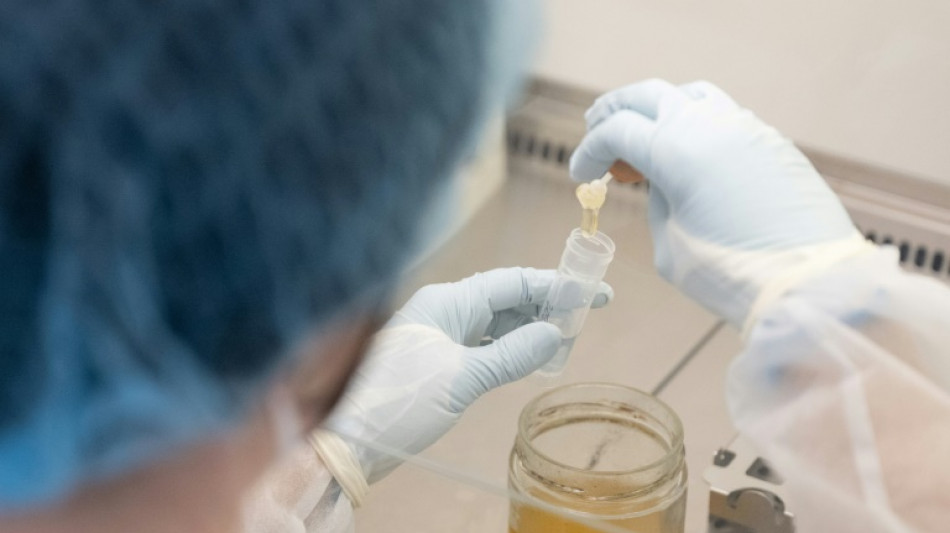
-
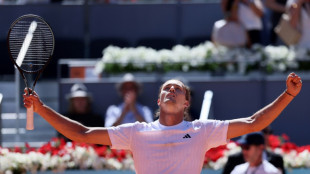 Zverev, Sabalenka battle through in Madrid Open, Rublev defence over
Zverev, Sabalenka battle through in Madrid Open, Rublev defence over
-
Ruthless Pogacar wins Liege-Bastogne-Liege for third time

-
 Bumrah claims 4-22 as Mumbai register five straight IPL wins
Bumrah claims 4-22 as Mumbai register five straight IPL wins
-
No place for racism, hate in France, says Macron after Muslim killed in mosque
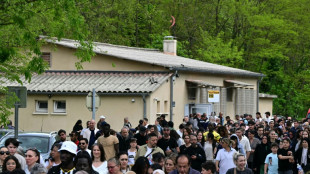
-
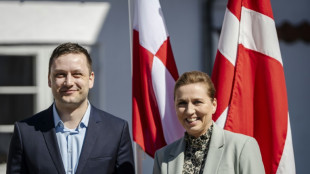 Greenland leader says Trump's threats disrespectful
Greenland leader says Trump's threats disrespectful
-
Spain's Alex Marquez celebrates maiden MotoGP in home Grand Prix
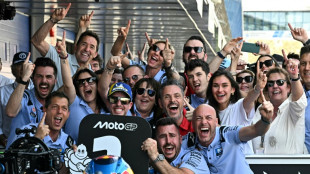
-
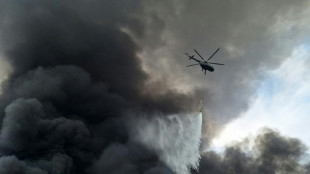 Iran's president visits site of port blast that killed 28
Iran's president visits site of port blast that killed 28
-
French rapper Jul breaks attendance record at national stadium

-
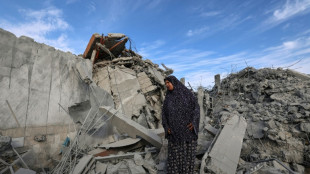 Gaza ministry says hundreds of war missing confirmed dead, toll at 52,243
Gaza ministry says hundreds of war missing confirmed dead, toll at 52,243
-
Crowds flock to Pope Francis tomb, as eyes turn to conclave

-
 'Godfather' director Coppola bags lifetime achievement award
'Godfather' director Coppola bags lifetime achievement award
-
Assefa sets world record, Sawe destroys high class field in London marathon

-
 'No excuse': Real Madrid's Rudiger after throwing object at ref
'No excuse': Real Madrid's Rudiger after throwing object at ref
-
Fire blazes day after Iran port blast killed 28, injured 1,000
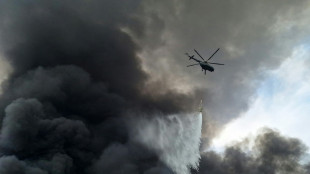
-
 Real Madrid meltdown after third Clasico defeat inevitable end to ugly weekend
Real Madrid meltdown after third Clasico defeat inevitable end to ugly weekend
-
Nine killed as driver plows into Vancouver festival crowd

-
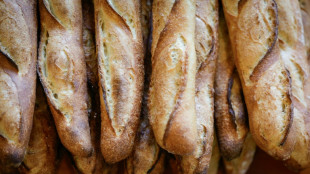 Crumbs! Should French bakeries open on May 1?
Crumbs! Should French bakeries open on May 1?
-
All eyes turn to conclave as Pope Francis tomb opens to public

-
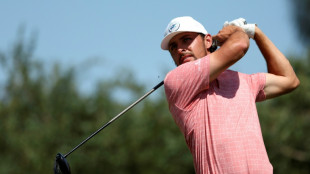 Emotional Penge bounces back from betting ban for first DP Tour win
Emotional Penge bounces back from betting ban for first DP Tour win
-
25 killed, 1,000 injured in huge Iran port blast

-
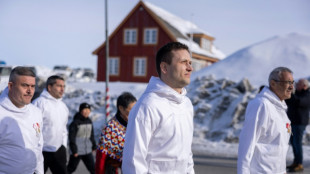 Greenland PM visits Denmark as Trump threats loom
Greenland PM visits Denmark as Trump threats loom
-
Philippines, US test air defences as China seizes reef
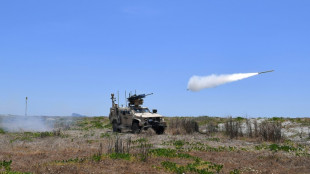
-
 25 killed, fires still burning in huge Iran port blast
25 killed, fires still burning in huge Iran port blast
-
India and Pakistan troops exchange fire in Kashmir

-
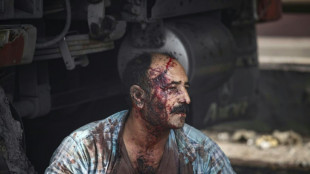 Eighteen killed, fires still burning in huge Iran port blast
Eighteen killed, fires still burning in huge Iran port blast
-
No handshake at muted India-Pakistan border ceremony

-
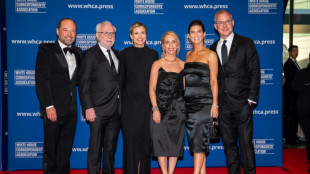 Maligned by Trump, White House reporters hold subdued annual gala
Maligned by Trump, White House reporters hold subdued annual gala
-
Austria trials DNA testing to uncover honey fraud
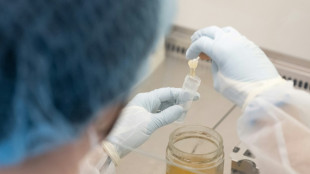
-
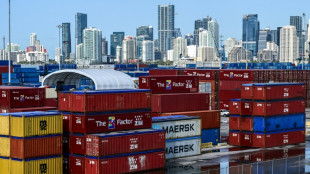 Trump trade war pushes firms to consider stockpiling
Trump trade war pushes firms to consider stockpiling
-
D'Backs' Suarez becomes 19th MLB player to hit four homers in one game

-
 Continuity or rupture: what direction for the next pope?
Continuity or rupture: what direction for the next pope?
-
Surridge scores four as Nashville smash seven past Chicago

-
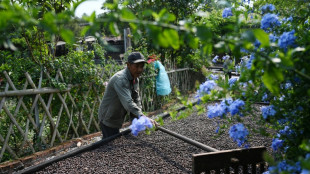 Chinese tea hub branches into coffee as tastes change
Chinese tea hub branches into coffee as tastes change
-
Diplomacy likely to trump geography in choice of new pope
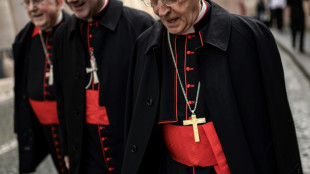
-
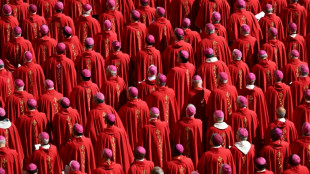 All eyes turn to conclave after Pope Francis's funeral
All eyes turn to conclave after Pope Francis's funeral
-
Doves, deaths and rations: Papal elections over time

-
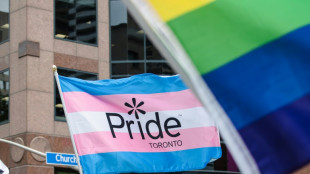 Progressive Canadians say social issues blown off election agenda
Progressive Canadians say social issues blown off election agenda
-
Liverpool primed for Premier League title party

-
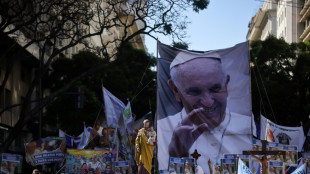 Buenos Aires bids farewell to Francis with tears, calls to action
Buenos Aires bids farewell to Francis with tears, calls to action
-
Thunder sweep past Grizzlies in NBA playoffs, Cavs on brink

-
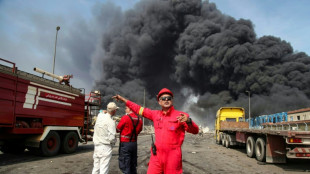 Major blast at Iran port kills 14, injures 750
Major blast at Iran port kills 14, injures 750
-
'What we live for': Kounde after winning Barca Copa del Rey final

-
 More McIlroy magic at PGA pairs event but Novak and Griffin lead
More McIlroy magic at PGA pairs event but Novak and Griffin lead
-
Fire rages after major blast at Iran port kills 14, injures 750
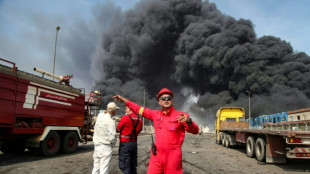
-
 Denkey wonder-strike keeps Cincinnati on track in MLS
Denkey wonder-strike keeps Cincinnati on track in MLS
-
Barca edge Real Madrid in extra-time to win wild Copa del Rey final

-
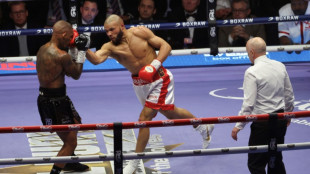 'Legendary' Eubank Jr beats Benn in grudge bout
'Legendary' Eubank Jr beats Benn in grudge bout
-
Thunder sweep past Grizzlies into NBA playoffs 2nd round, Cavs on brink

-
 South Korea's Ryu and Japan's Saigo share LPGA Chevron lead
South Korea's Ryu and Japan's Saigo share LPGA Chevron lead
-
Canada leaders make closing pitches in campaign upended by Trump


Austria trials DNA testing to uncover honey fraud
At a laboratory in Austria's mountainous Tyrol province, scientists are DNA testing about 100 honey samples a month to learn about their composition -- and in some cases to determine whether they have been adulterated.
With fake honey flooding markets, and only a few European laboratories running such analysis, the small Austrian company Sinsoma began offering the tests two years ago.
"It is really something new for the honey market," said Corinna Wallinger, head of sales at Sinsoma.
It is essential that technology "always moves forward -- just as the counterfeiters" do, she added.
Honey cannot have ingredients such as water or inexpensive sugar syrups -- which might boost its volume -- added to it, according to EU legislation.
But tests have shown that is common practice.
Between 2021 and 2022, 46 percent of the honey tested under an EU investigation as it entered the bloc was flagged as potentially adulterated, up from 14 percent in the 2015-17 period.
Of the suspicious consignments, 74 percent were of Chinese origin.
- Beekeepers' livelihoods threatened -
Seeking to better detect fraud, Austria's health and food safety agency (AGES) used DNA testing for the first time this year and is still evaluating the results.
European supermarket chain SPAR also ordered DNA tests for its honey.
The chain put its honeys -- taken off the shelves late last year in Austria for testing -- back after they passed DNA tests and another analysis.
Besides cheating consumers, fake honey threatens the livelihood of beekeepers, who struggle to compete with the far lower prices of imported honey -- often blended from various countries -- and are demanding more effective testing.
"We don't have a chance at all," said Matthias Kopetzky, owner of the Wiener Bezirksimkerei, which takes care of up to 350 hives in Vienna, as bees buzzed around him on a meadow overlooking the capital.
While the European Union is the world's top honey producer after China, it is also the second-biggest importer after the United States.
Most of the bloc's honey imports come from Ukraine, China and Argentina, according to EU data.
An EU directive adopted last year stipulates that honey labels from mid-2026 must detail the countries of origin, as opposed to merely referencing a "blend of EU and non-EU honeys".
Beekeepers like Kopetzky hope the new rule will raise consumer awareness.
Brussels also set up a group of experts, with a mandate until 2028, to "harmonise methods to detect adulteration in honey and trace the product back to the harvesting producer or importer".
- Rigorous process -
Austria's Sinsoma has specialised in DNA testing.
"Honey is full of DNA traces, of information from the environment where bees collected the nectar. Every honey has a unique DNA profile," Wallinger said.
When a honey sample lacks a wide range of DNA traces or for example contains a high proportion of DNA traces from rice or corn -- which bees do not frequent -- this indicates a honey is not genuine, she added.
Co-founded by Wallinger in 2018, Sinsoma now employs about a dozen people working in the small laboratory room and adjacent open office space in the quiet town of Voels near Innsbruck.
Sinsoma charges beekeepers 94 euros ($103) for a basic DNA test targeting plants -- about half of what a classic pollen test would normally cost, she said.
For the DNA profile, beekeepers also get a QR code which allows consumers to see exactly which plant species the bees making the honey have frequented, she said.
Experts warn the DNA method can detect certain types of fraud but not all, and that a rigorous process of validation is required to ensure trustworthy results.
Wallinger recognised the need for standardisation of the methods but said this will take time.
"It is always somewhat of an issue -- and this is also the case at the EU level," she said.
"If you always wait until you can use a standardised method to uncover a fake honey, then you will always be lagging behind what counterfeiters are doing."
M.Thompson--AMWN